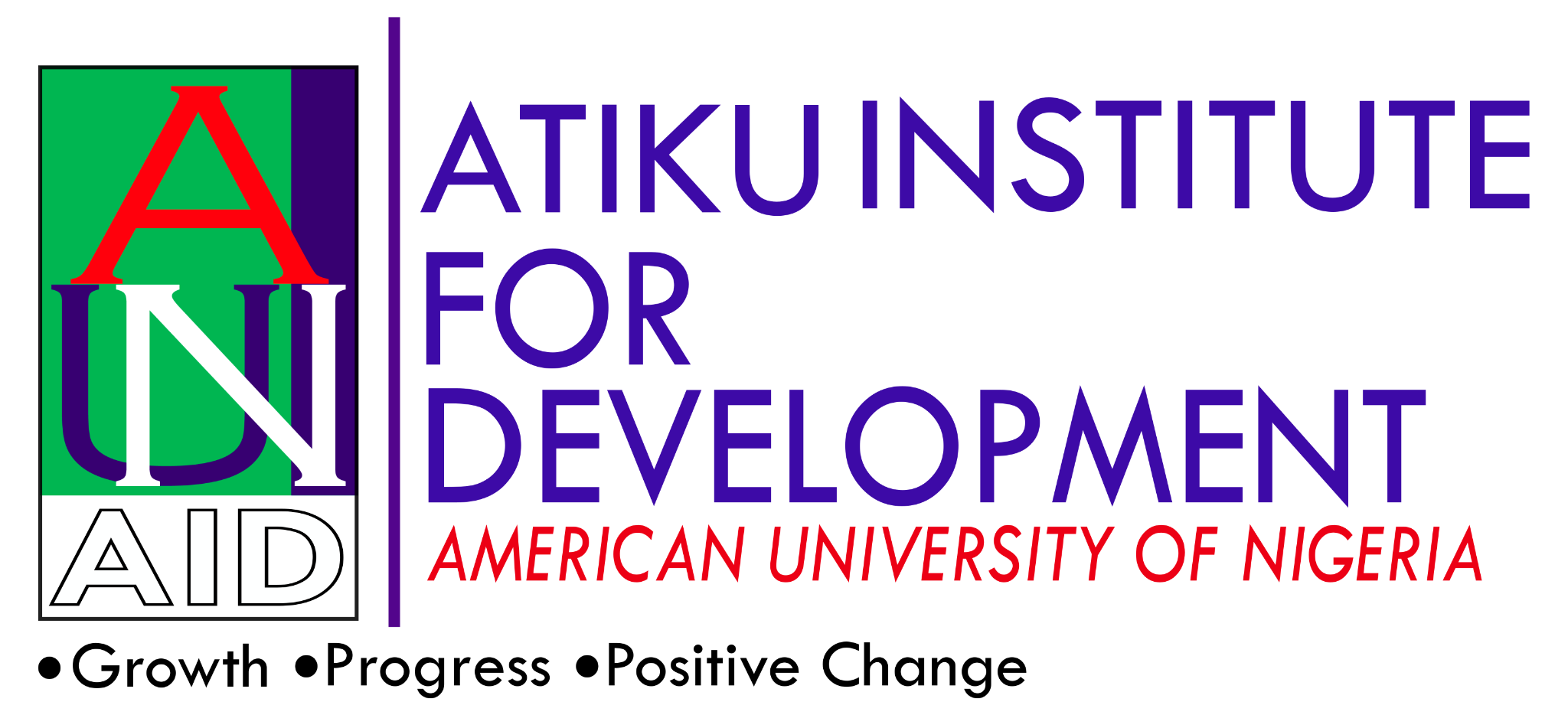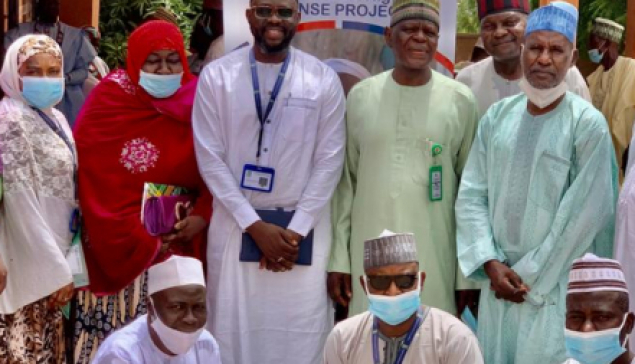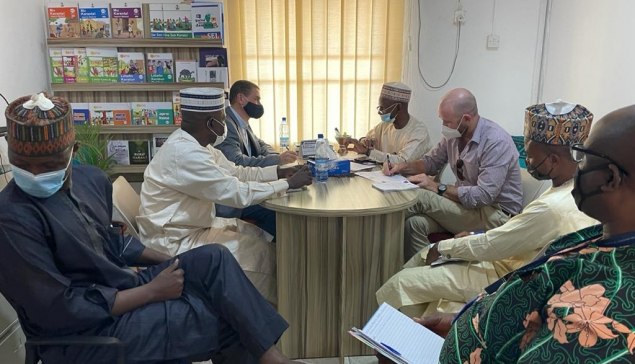Food Security: Farmers must be in the equation
Dr Ferdinand Che is Assistant Professor at the American University of Nigeria, AUN, Yola and the Faculty Advisor of the AUN Honor Society.
In this chat with Vanguard in Yola, Dr Che says for Nigeria to get agriculture right, farmers and agric extension officers must be involved. Excerpts:
Double-edged sword
For somebody like myself, situated in Nigeria or anywhere else in Africa, it’s a double-edged sword because we have an opportunity to look at problems and really try to make a connection between what we are doing in the academia and what is happening within the community. Unless we have these conversations, unless we are seeking to take our community out of poverty, unless we are seeking to make connections between institutions, seeking to look at how we can take resources from where they are available to where they are needed; we will just be sitting there folding our hands.
Import restrictions
Various Nigerian governments have tried to put tariffs and restrictions on food imports. Part of that is because we have the confidence that we can actually produce enough food to feed our people but the truth is that it is not always the case. As much as it is a good thing to try and develop the local industry, if for whatever extreme situations we need to rely on ourselves, we often cannot necessarily do so. For example, we have restrictions on rice importation but the local production of rice is not enough to meet demands in Nigeria right now so people are cutting corners.
For us, what is interesting is that with all of this going on, government says they want to build local capacity to generate enough food for the people’; that is good; but who are those farmers?
The farmers
The vast majority of those producing food for us are actually in the rural areas whereas in other parts of the world, we have a lot of mechanisation and farmers are already taking advantage of mechanisation, automation and information systems to improve their productivity. What we don’t know is the picture in Nigeria.
Since a lot of these people are in the rural areas, we don’t have access to them and we don’t have a lot of control to take advantage of some of the programs the government is putting forward in trying to tackle food insecurity.
Research/Agric extension
Researchers do a lot of work around this area but often, something is missing in that equation. We can speculate all we want about what farmers should, or can or would be doing with this fantastic program that we have but what is often missing is the perspective of the actual farmers on ground. There are some good things happening, we have the Agricultural Extension workers and they have been around for a long time. This system of supporting farming has been around for a long time and we have actually had a great deal of successes from that in Nigeria but there was a time they were abandoned; that is the case right now in the sense that the kind of system that supported them right from the Ministry of Agriculture all the way through to the individuals (extension workers) who themselves are farmers, has largely been neglected so you have people who depended a lot on the resources from government. These are generally very capable farmers and they can support others by showing them modern agricultural methods, how to get their produce to the market and which markets they should go to.
Middlemen
All of these things mean ultimately, that the farmers in the rural area can get a good enough return on their efforts and so they can actually grow as we keep talking about growth but when they don’t have that kind of support, they have a no-win situation. They can’t get access to good quality inputs, they can’t get access to land to do the farming because they don’t usually own the land so they have to get that land from somebody else and they can’t even get the labour to cultivate the land and whatever they produce, they can’t get to the right market at the right time in the right state so what really happens is that the people who actually make any gains at all are the middle men who go to these villages to buy the produce, so the farmers are locked in.
What we did
One of the things we did was to talk to these farmers to understand what their situation is like and get a sense of how their perspective can become something in the general discourse because if we are serious about developing agriculture, diversifying from oil and taking care of food security, then we must define the problem clearly to begin with. We can’t discount the vast majority of the farmers that are really poor, we need to take care of them and we must also look to see if there are opportunities.
Young people in agric
One way to expedite that diversification for example, is by bringing young people with energy into the equation. They will work with the farmers, help them and grow to their businesses so we are looking at farming now as more of a business than just producing food so that people can sustain themselves. That is likely to lead us quicker to where we want to go with respect to addressing our food security issues than just talking in Abuja.
ICT in agric
We want to look at how ICTs can help these farmers and how we can make them more entrepreneurial, more active and more business-focused. We want to open the conversation up so that the people who actually are the biggest beneficiaries of whatever program we are trying to do to improve agriculture, are in that conversation.
So basically, you are trying to do what the former Minister of Agriculture, Dr Adewunmi Adesina did with fertiliser?
Yes, that was the feedback we got on the field and I must add that the reason that we had such access to these farmers is because of the work Mr Audu Liman and his team are doing at the Atiku Centre at AUN, Building Resilience Through Sustainable Agriculture, BRSA, project sponsored by GIZ, a German development agency. Right now, they are working with both farmers and extension workers in Mubi (North & South) and Maiha, Adamawa State.
Connecting
The other thing is: how do we ensure that we can connect? I think the former minister, Dr Adesina was right because from the perspective of these farmers, they were in a good place but that was derailed for whatever reason. What they are seeing is that what used to get to them directly, now goes through a string of politicians who frankly have no understanding or interest. What they have is personal interest and so, a lot of that is doctored and sold to the farmers so they are having poor quality inputs and some of them are dangerous.
Then the good ones are also doctored because they want to sell more and make more profit so essentially, they buy from the politicians. So there is certainly entrepreneurial work going on but not what they actually intended.
Adding value to agric produce
We are not really transforming those raw farm produce into a state that we can get the most value out of them. But the biggest problem farmers have in cultivating tomatoes and stuff like that is that most of them rot away. They have no way of either processing or preserving them and what that means is that they have zero bargaining power. Somebody only needs to tell you: “Oga, I’ll come back tomorrow or next week and we will see how much of that you will still have.” There are so many problems with that because it means we are not maximising what we have.
Govt intervention
Government can invest in young people who want to do businesses that are about transforming farm produce, adding value, creating the infrastructure (roads to access these places) and retain a huge amount of the value of the produce. Unfortunately, we don’t have that. Government can’t do everything but they certainly can facilitate this. Agriculture is no longer as unattractive as it used to be; so young people who have intention of starting agricultural businesses can do so; but we don’t necessarily want them to go into crop production even though that is good if they have good fertile lands and we have a lot of that in Nigeria. That is one aspect.
Be more creative
Secondly, let us be more creative. While we are already cultivating, let’s take it to another level, let’s add value to what is coming out of the farms. Processing them, storing them, getting them to the market where people can buy because if you supply the markets adequately, we certainly will buy more and people will have more good quality food and cheaper. That is a clear win-win for everybody. So government can assist with that kind of thing. They even have loans but to get that loan is another matter. The people who end up getting the loans are people who don’t need the loans; it’s the same politicians.
By Ebele Orakpo
Read more at: https://www.vanguardngr.com/2019/11/food-security-farmers-must-be-in-the-equation-dr-ferdinand-che/


